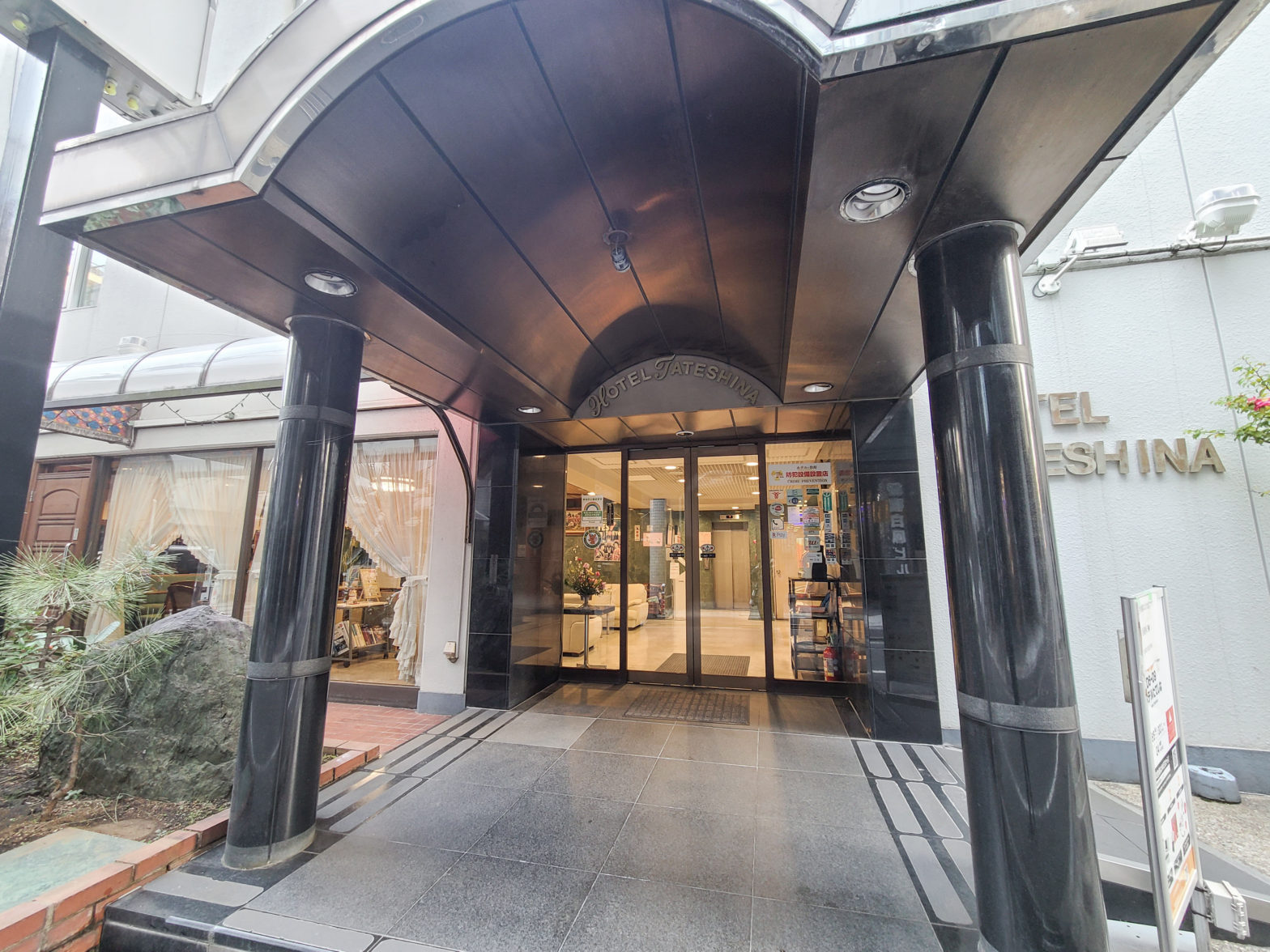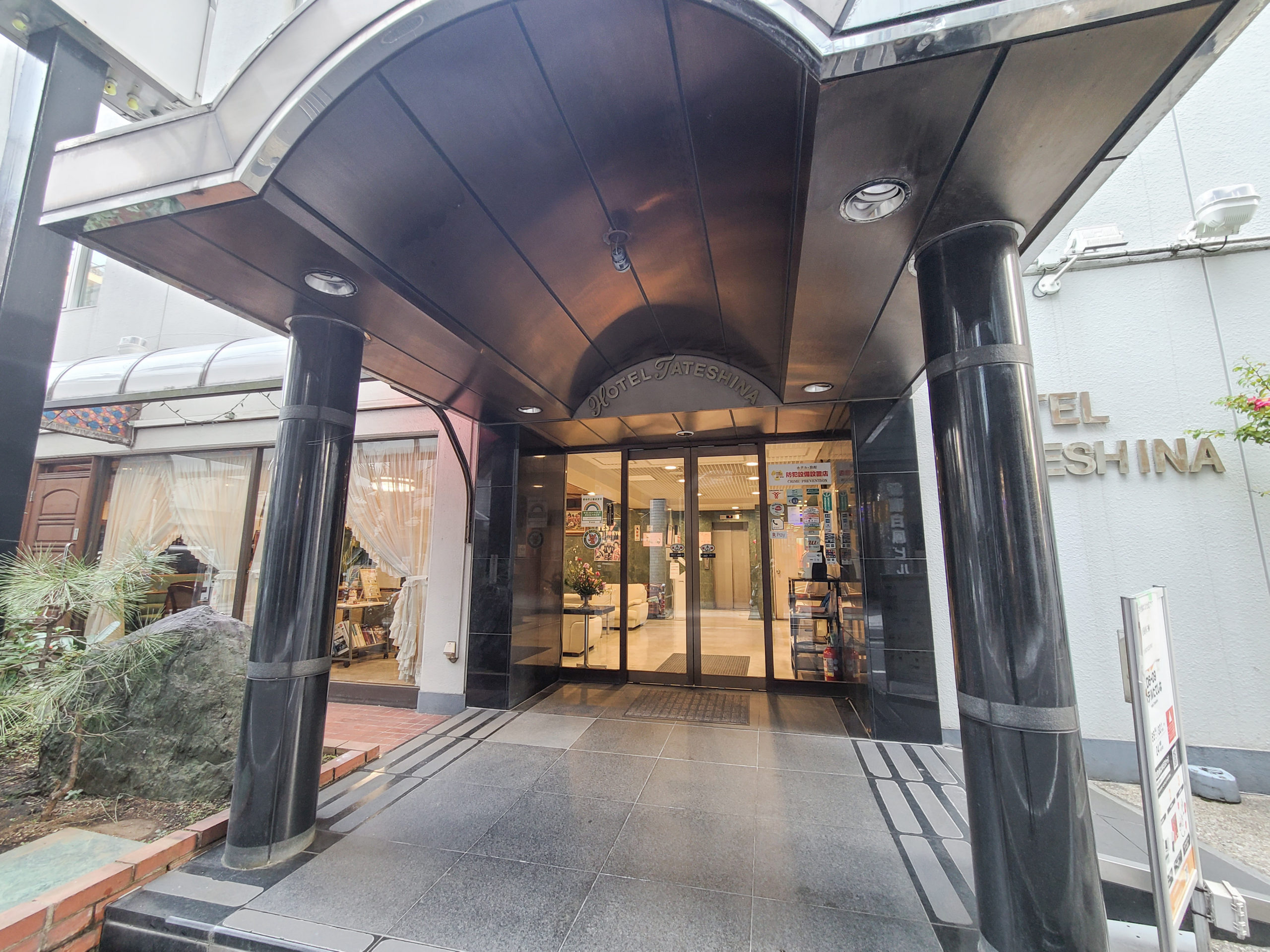
Welcome back to Tokyo Ryokan Stories! I’m Roza Akino, and I live and work in Japan. Thanks for joining me on my journey to explore the lesser-known inns and hotels in Tokyo!
Approximately 13 minutes from Shinjuku station on the Yamanote Line and only 3 minutes from Shinjuku-sanchome on the Toei Shinjuku Line, this hotel is far enough from the station to get away from the crowds, while still being convenient enough for easy access to various train and subway lines.
The building looks simple from the outside, but once I step inside the lobby I notice its strong vintage vibes, something that most people in Japan would identify as the “Showa retro” aesthetic taste of the Showa period. The sound of my steps against the marble floor stands out in the quiet room. A notice a glass case displaying various trinkets and souvenirs from different countries.
After a moment, a slim gentleman wearing a dandy-looking suit comes to greet me. This is Nobuo Yanagisawa-san, Representative Director of the hotel. We take a seat at one of the tables off to the far side of the room.
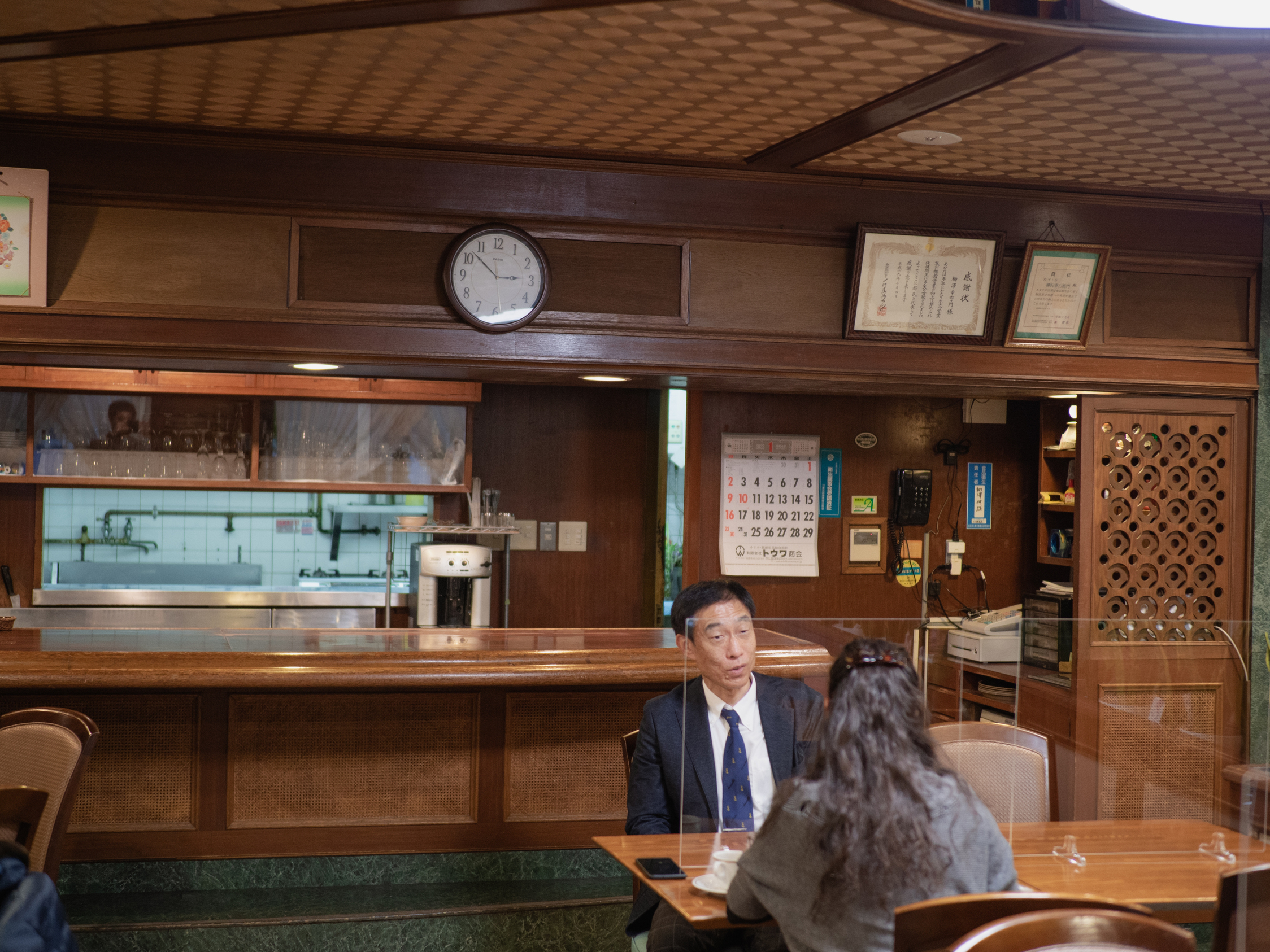
The vintage bar area on the far side of the lobby
This bar area, Yanagisawa-san remarks, used to be a restaurant pub. Currently it’s not in operation, and guests are free to use the chairs and tables as they please. If you enjoy vintage things, this is definitely an environment that you will appreciate. The rich browns of the wooden interior match well with the green marble, giving it a classic pub feel.
The hotel got its name from the Tateshina area of Nagano, which is where Yanagisawa-san’s family is originally from. Before it was hotel, Hotel Tateshina was a small ryokan that Yanagisawa-san’s father opened after the war in 1951.
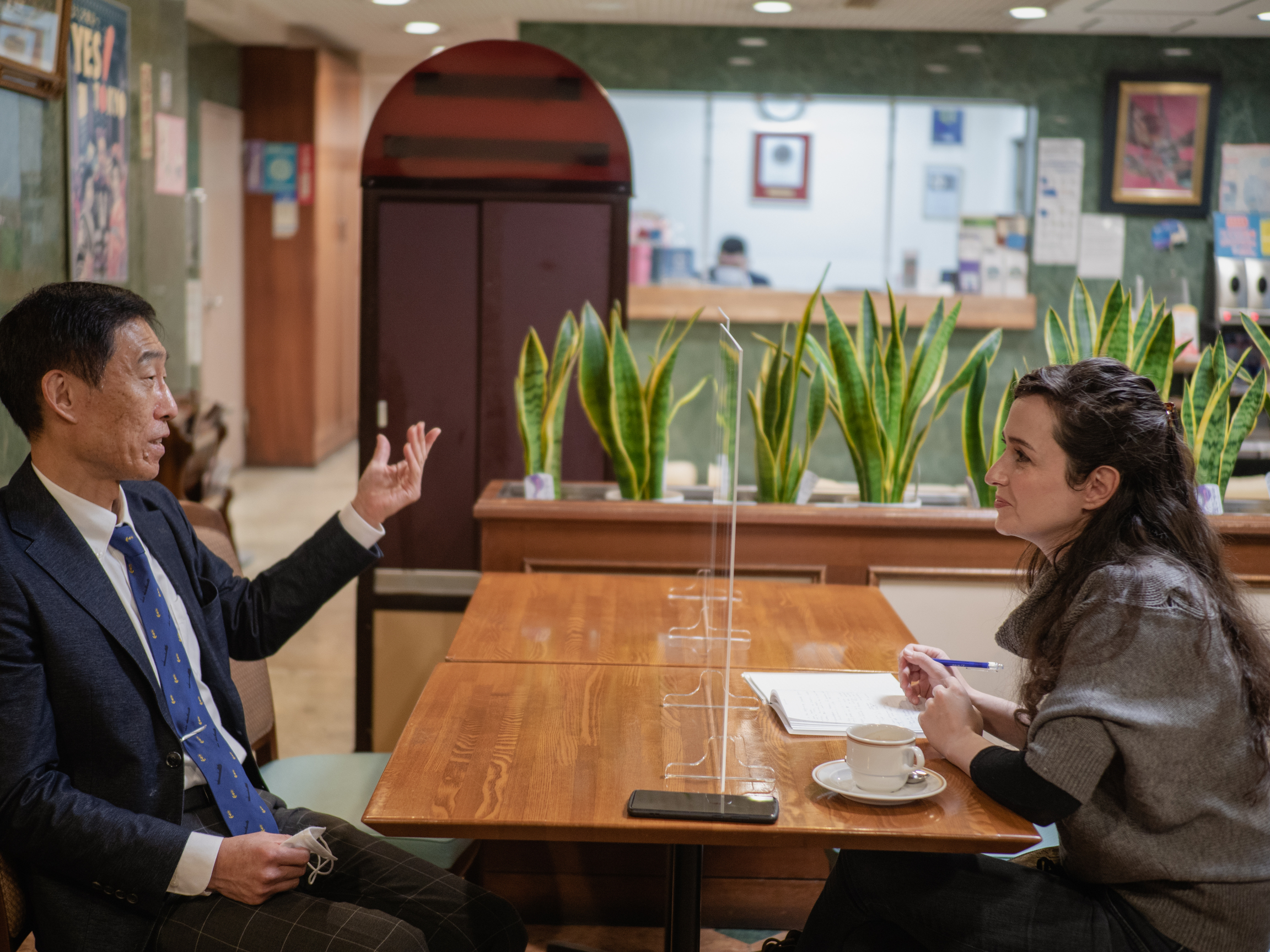
Yanagisawa-san and I
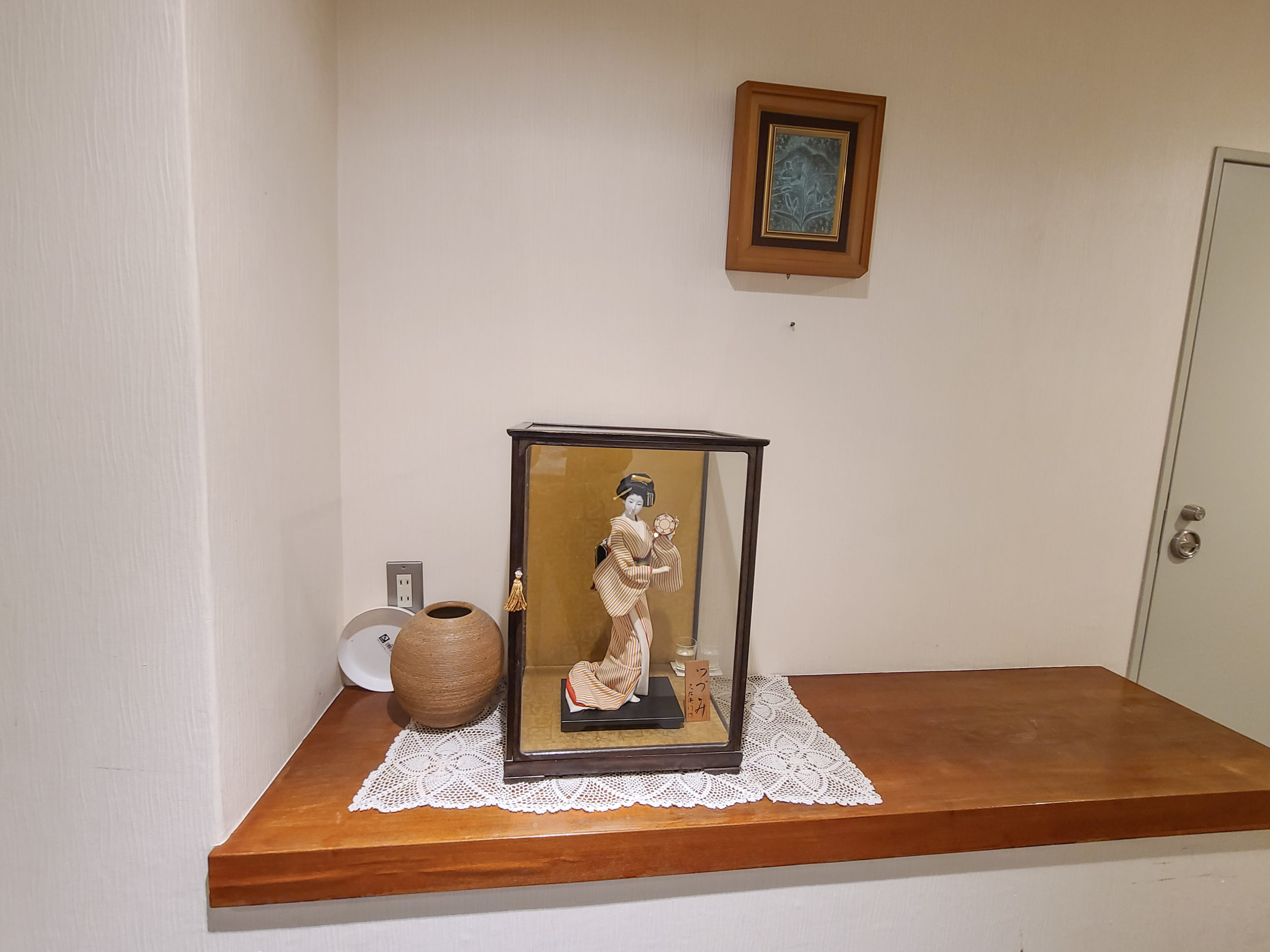
Parts of the hotel display traditional pieces such as this odori (traditional dance) doll
Eventually it was renovated and turned into a hotel, as many ryokan at the time were, but one aspect of the ryokan family touch that remains is the breakfast made by Yanagisawa-san’s wife. The breakfast requires a reservation, and both Japanese and Western-style breakfast options are available.
Before the pandemic, approximately 30% of the hotel’s guests were foreign visitors. As this location is particularly close to the Aikikai Hombu Dojo, the hotel also was often host to martial arts practitioners who came to Japan for their certification or training. With its affordable price-point, Hotel Tateshina is a great choice for those who want a convenient location on a budget.
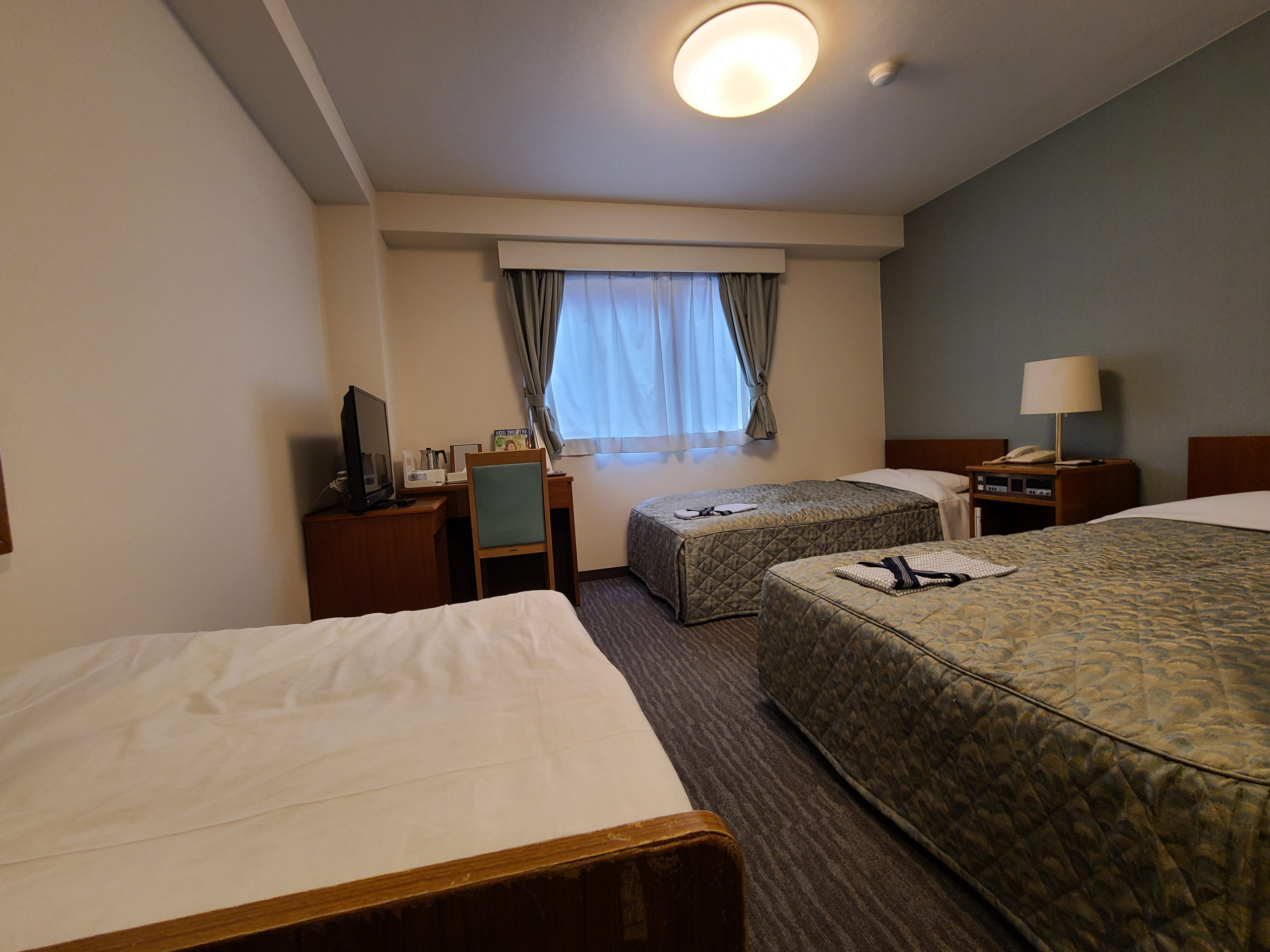
A room with two beds, and an extra bed that can be used to occupy a third person
Another feature that the hotel offers is a day-use plan to use the hotel room from 11am to 6pm. As working remote is becoming more and more common, this plan is convenient for people who need a quiet space for meetings or to concentrate for a few hours between their appointments. All the rooms of course have Wi-Fi as well as a LAN cable connection.
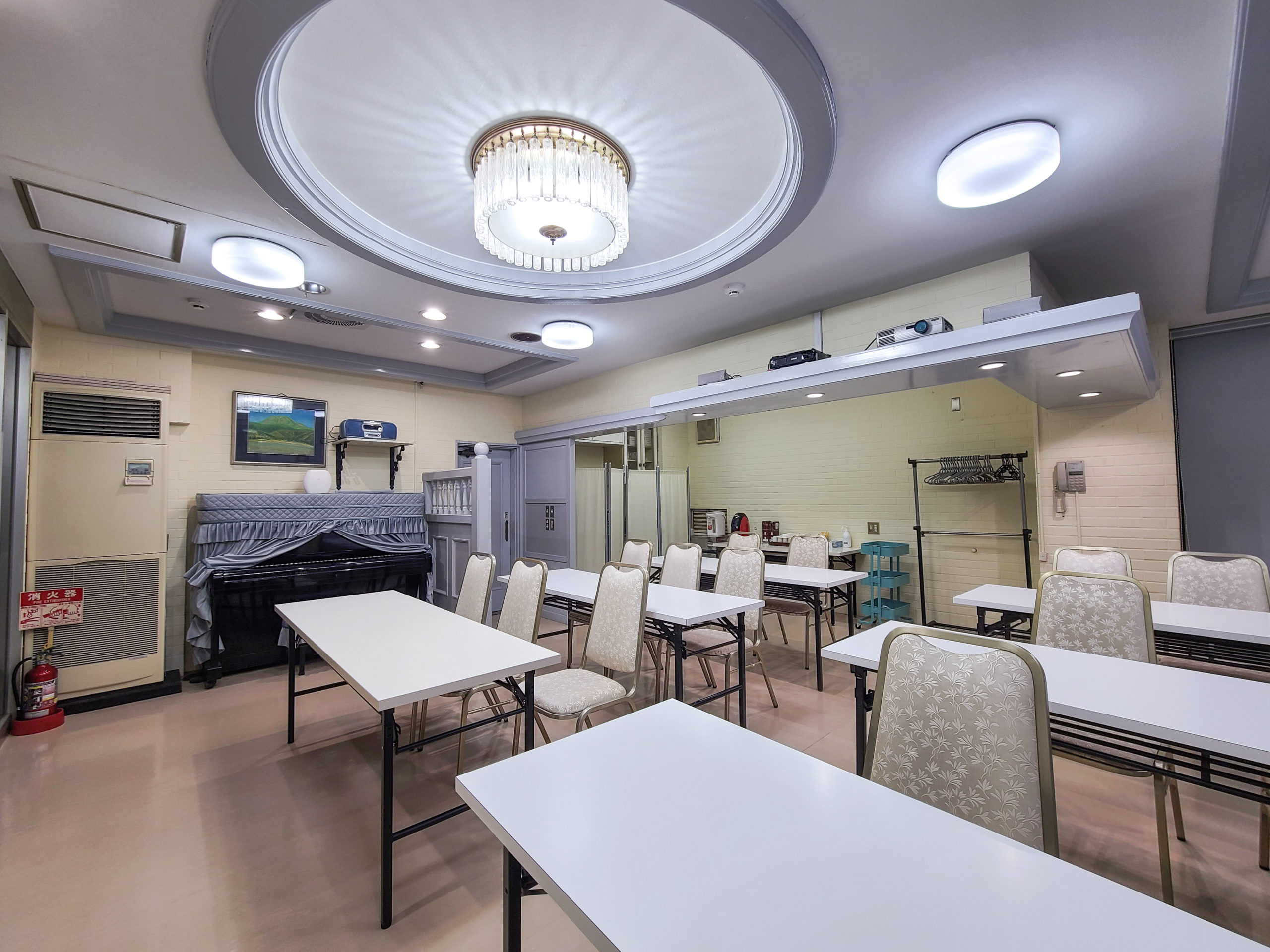
The multipurpose conference room comes with everything you could need—even a piano!
There is also a multipurpose conference room that is available to rent. This room is spacious, furnished with tables and chairs, and can accommodate up to 30 people (the rate changes according to using hours). It’s also equipped with a liquid crystal projector, two TVs (100-inch screen and 55-inch screen), and blue-ray/DVD with surround-sound AV, all of which are available to rent for an additional fee. The room is often used for board game sessions as well as video shoots.
This conference room also has something unique: a piano. The piano is also available for use, but be sure to make a reservation in advance as it is popular among guests.
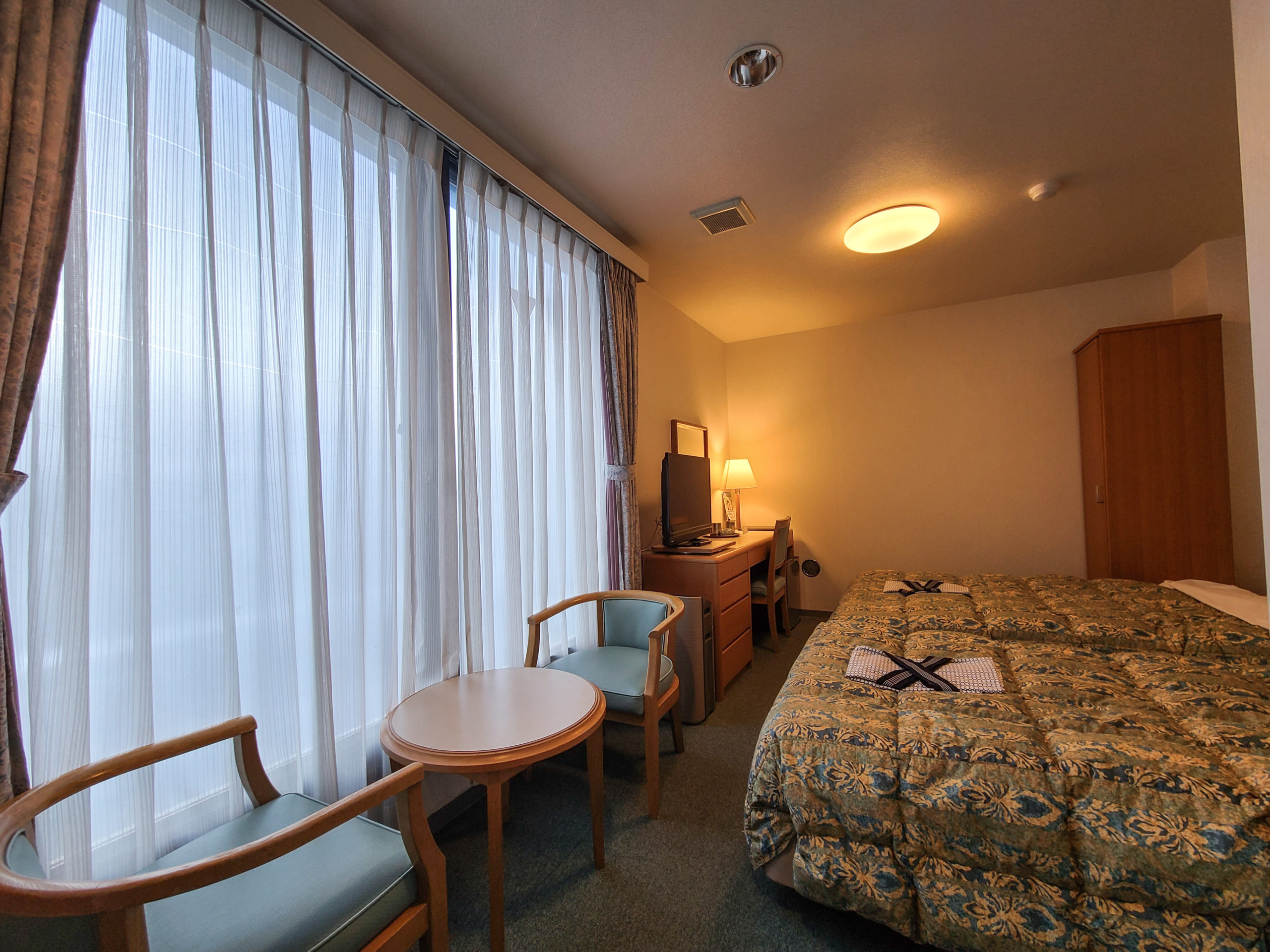
A twin room
With a total of 67 rooms, including single, semi-double, double, and twin rooms to choose from, you can choose the room type that will best suit your needs. All the rooms have a unit bath.
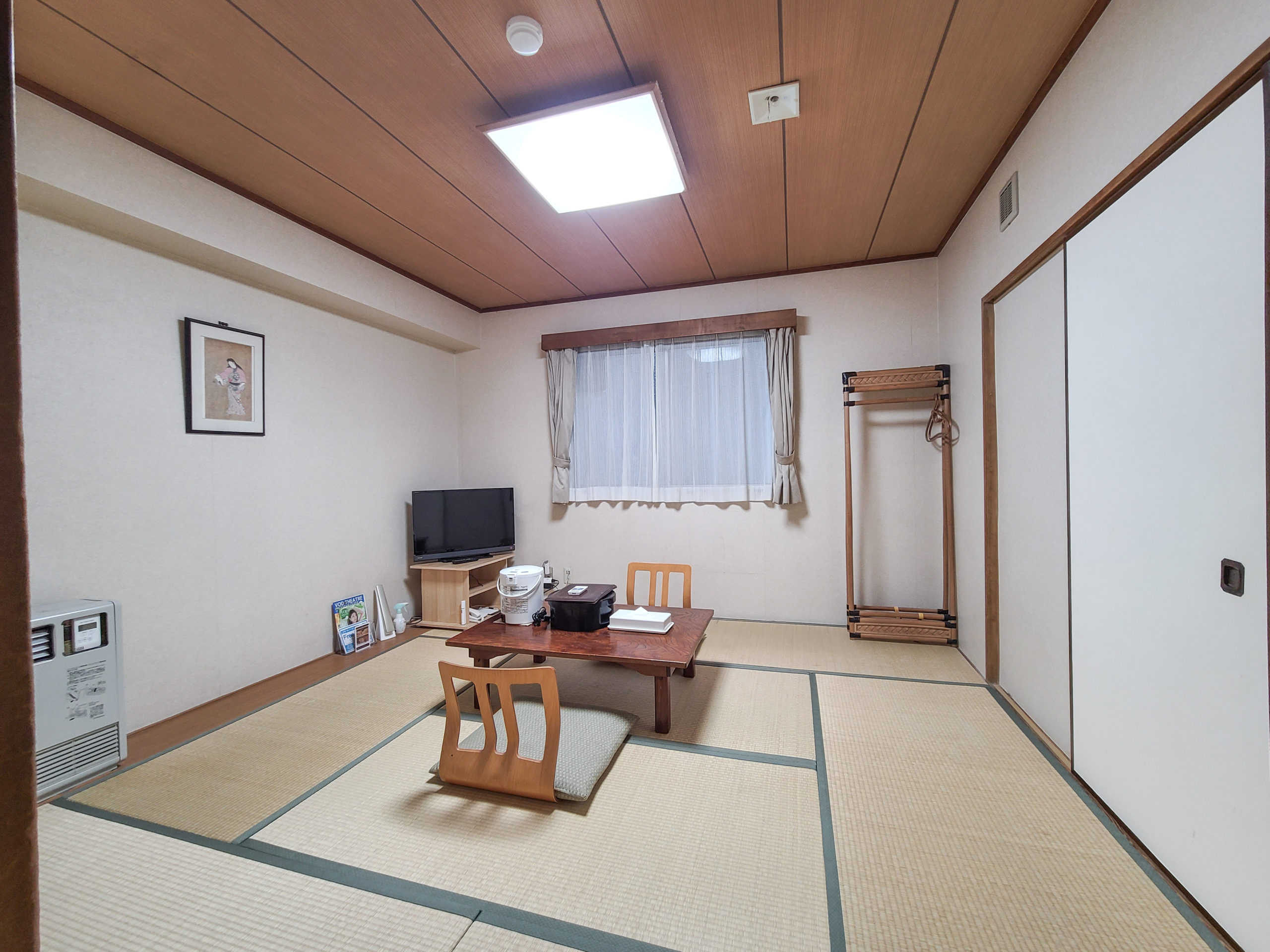
The tatami room is a popular choice for families
There are also 2 Japanese-style tatami rooms, which are perfect for families or small groups. 5 of the rooms in the hotel also have handrails at the entrance of the bathroom to make it easier for elderly and those with some physical disability to access.
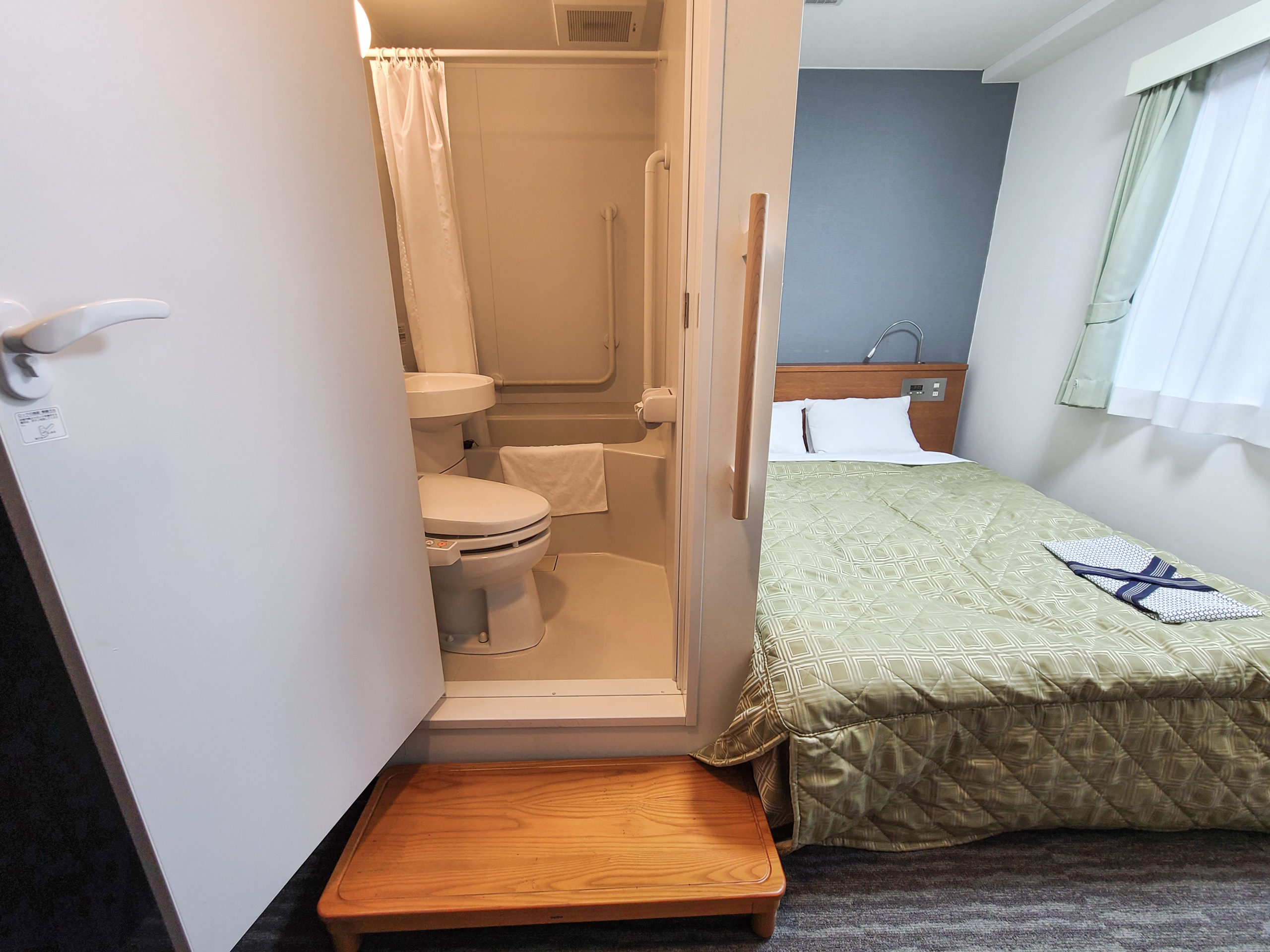
This room has a handrail and stepping stool to make access to the raised unit bath easier
The rooms themselves are simple, and include basic amenities with a yukata prepared for each guest to use as room/sleepwear.
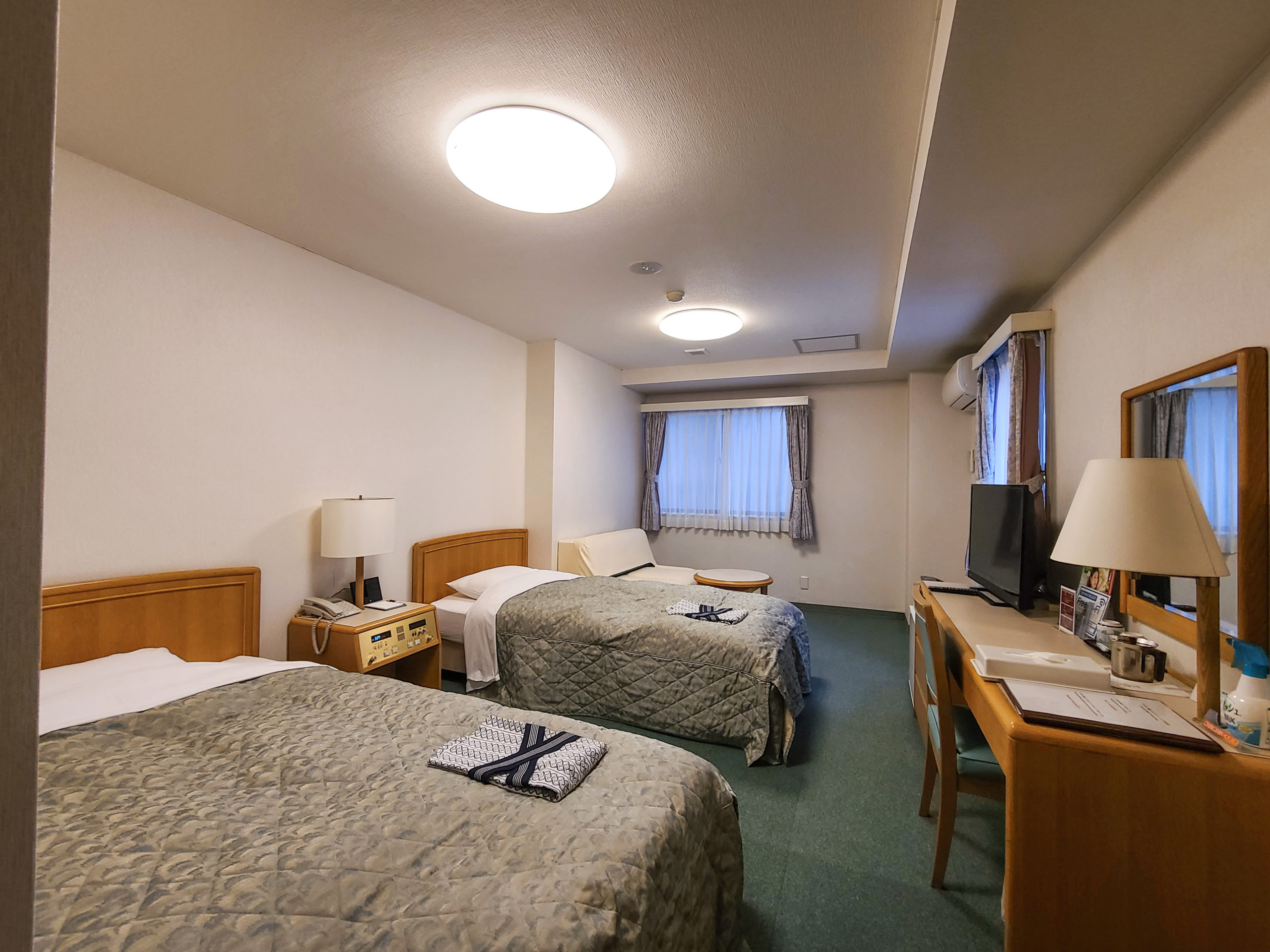
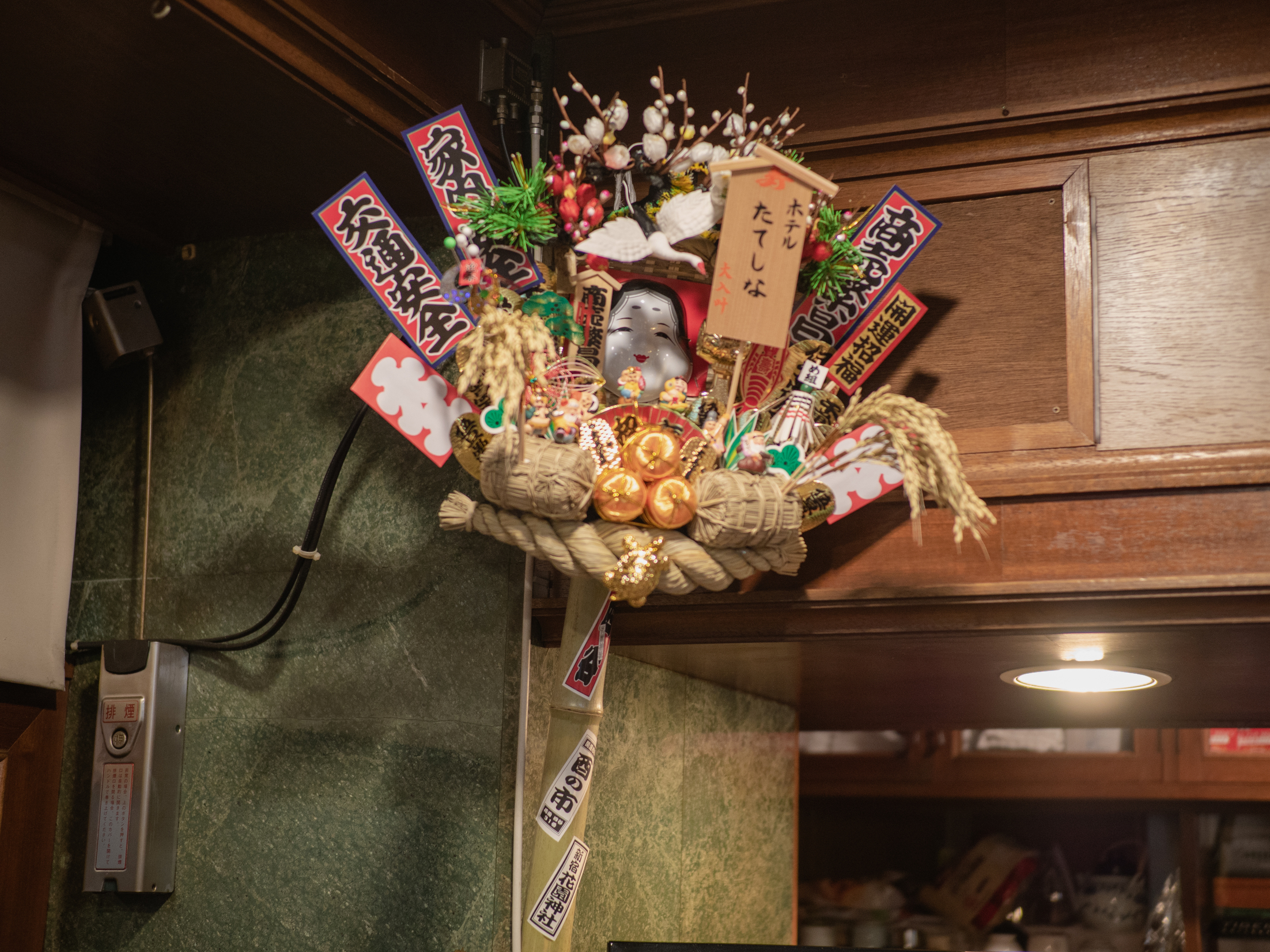
The kumade obtained at the Tori no Ichi is believed to bring prosperity
At the Tori no Ichi, people will buy kumade rakes that are decorated with auspicious symbols and display them for the year at their business.
There is also a festival nearby in July that features Okinawan dance, as well as another big festival in May around Shinjuku station area.
The many restaurants in the area surrounding the hotel allow for plenty of dinner choices. Off the top of his head, Yanagisawa-san mentions several soba, yakiniku, and tonkatsu restaurants, as well as an Italian-style restaurant famous for its omurice—a dish that features ketchup fried rice wrapped in a thin omelet, covered with demi-glaze sauce.
He also mentions a traditional Japanese sweets shop: Oiwake Dango—a shop that specializes in dango (round mochi balls on a stick)—that he used to often visit when he was a child. My ears perk up at this information, and as I’m sure you already know if you’ve been reading my series, I make plans to visit the shop next time I’m in the area.
The hotel’s website is also worth checking as it is regularly updated with tourist information and is available to view in English, Korean, and Chinese.
If you need a simple, convenient place to stay and without spending too much, Hotel Tateshina is a great choice.
With the end of our interview, I say goodbye to Yanagisawa-san. As I am about to leave the hotel, I notice a small rack of compact folding umbrellas in various colors for sale at the front desk.
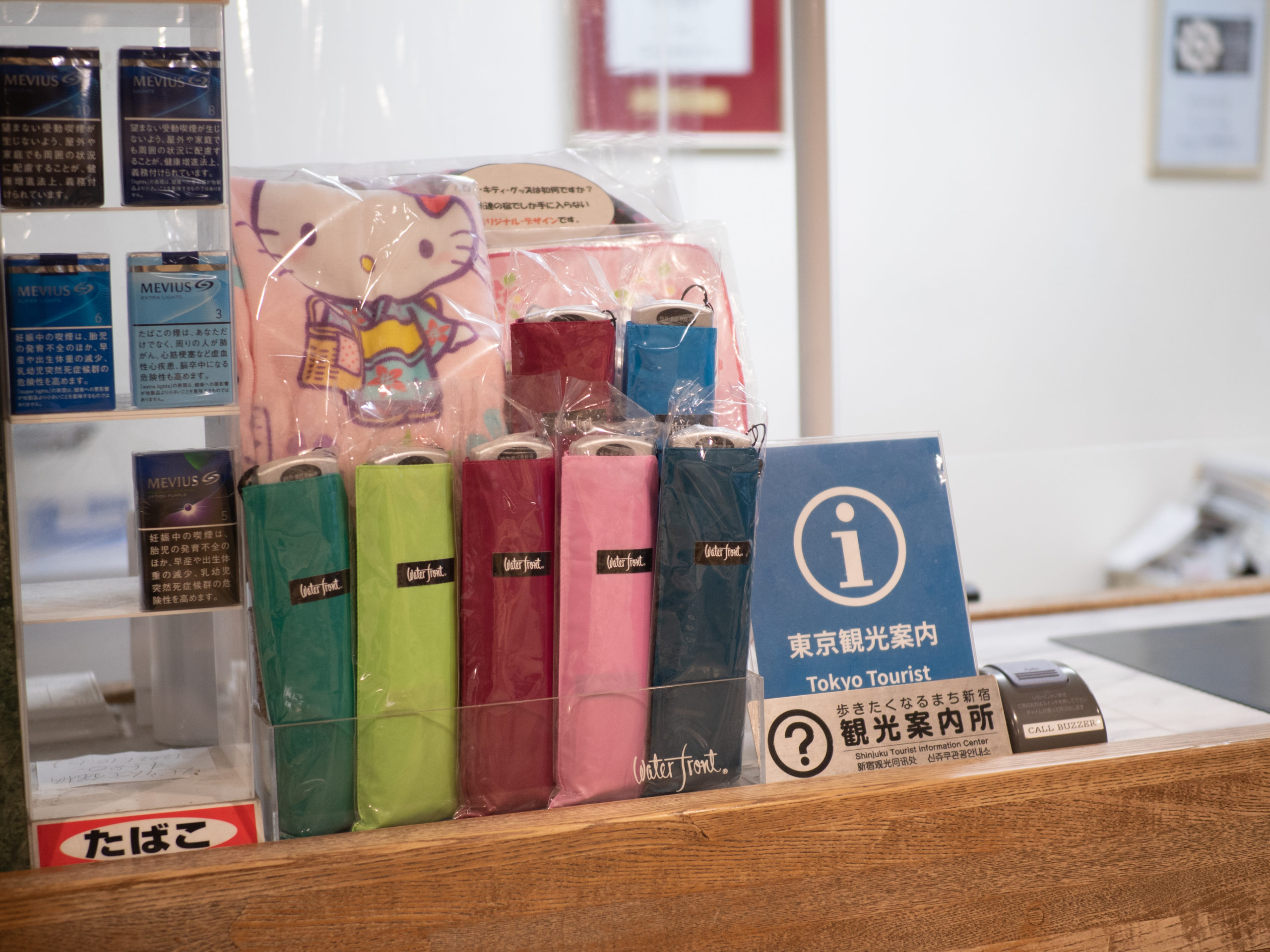
I can’t help but smile at what I feel is the hotel’s casual way of saying, “Are you good to go for today’s weather? If not, we’ve got your back.”
supported by Tokyo Hotels and Ryokans Association
